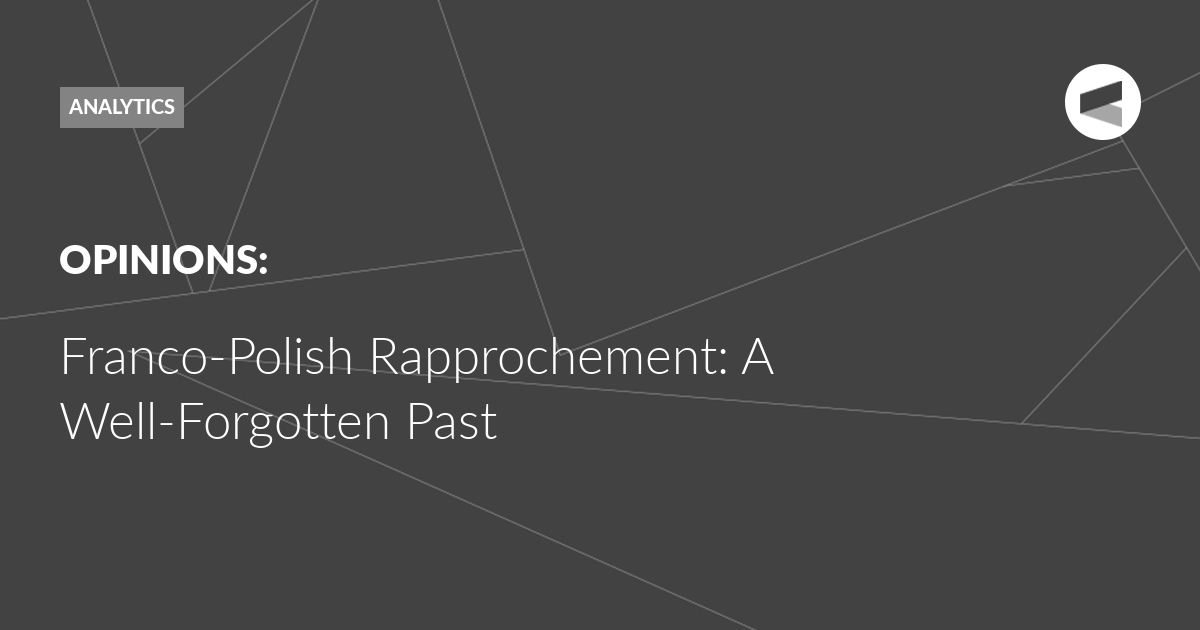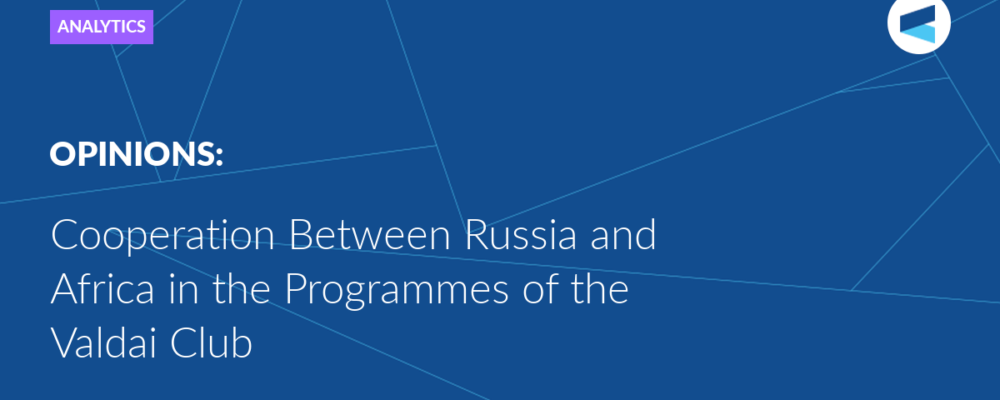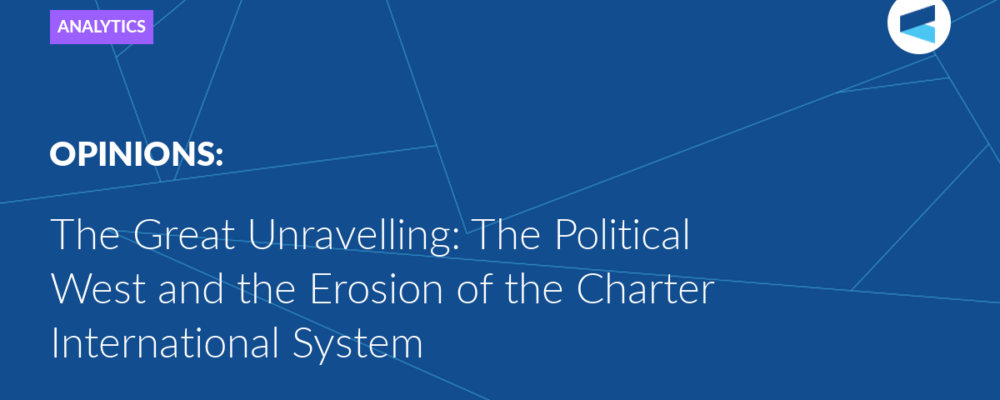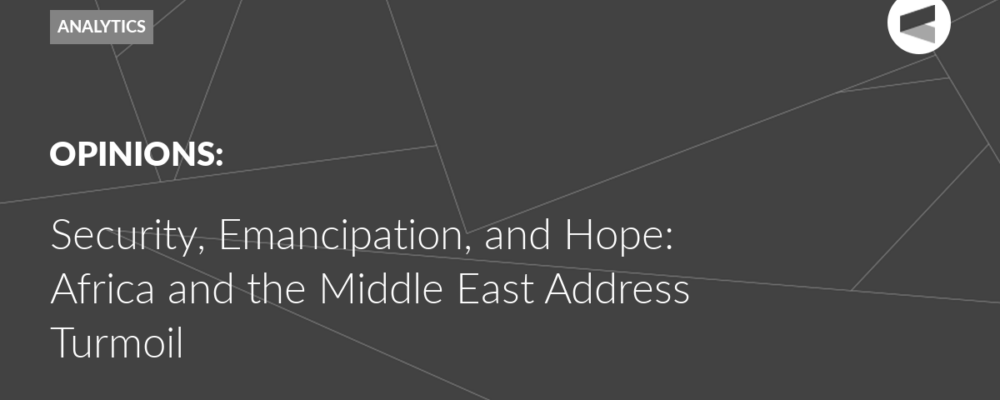Having signed a “big” treaty with Poland in Nancy, France is continuing to establish special ties with other individual EU member states while at the same time expecting to rely on Brussels in a long-term confrontation with Russia, writes Alexey Chikhachev, Associate Professor of the Department of European Studies at the Faculty of International Relations at St. Petersburg State University and leading expert at the Centre for Strategic Studies at the Institute of Foreign Economic Relations at the National Research University Higher School of Economics.
While Moscow was hosting a number of leaders of the World Majority at ceremonial events on May 9, its opponents were not sitting idle. On the same day in the city of Nancy, President Emmanuel Macron and Prime Minister Donald Tusk signed a bilateral agreement on friendship and enhanced cooperation, covering a wide range of topics from mutual defence and interaction within the EU to cultural and educational contacts. This step was partly overshadowed by subsequent events such as the visit of European leaders to Kiev and their demands for a ceasefire, as well as Russia’s response to resume negotiations. However, the Nancy Agreement itself looks quite remarkable in the context of how Paris’s strategic priorities in Europe are now taking shape and what role has been assigned to dialogue with Warsaw.
On the one hand, the practice of concluding “big” treaties with individual EU states is quite typical for current French diplomacy. In 2019, the Fifth Republic renewed the 1963 Elysee Treaty on historical reconciliation with Germany by signing the Aachen Treaty. In 2021, the Quirinal Treaty followed with Italy, and two years later, the Barcelona Treaty with Spain. Compiled according to the same template, they were all used by Paris to once again consolidate the pro-European course of each signatory state, and at the same time create a system of agreements, the central link of which would be France itself.
In addition, as the dynamics in the Franco-German tandem under Chancellor Olaf Scholz decreased, the Elysee Palace experienced an increasing interest in finding other interlocutors on key issues of the EU functioning, creating alternative geopolitical structures, due to which, ideally, it would be possible to balance out the FRG. Hypothetically, this could be a “triangle” with the participation of Rome or even a “square” with the involvement of Madrid. In this sense, Poland is another promising option, especially since the joint minilateral format – the “Weimar Triangle” Paris-Berlin-Warsaw – has been functioning, albeit not without interruptions, since the late 1990s. It is significant that all of the countries listed are among the largest EU powers: by establishing special ties with each of them, France hopes to strengthen the intergovernmental level of EU governance in addition to the supranational level.
On the other hand, both historically and in modern times, many things have converged for France on Poland. The city of Nancy was chosen for the signing for a reason, since it is closely connected with the fate of Stanislav Leszczynski, whose candidacy for the Polish throne Paris actively supported in the 1730s, competing with Russia on this issue. Traditionally, the Polish diaspora in France is quite large, having begun to move there after the loss of independence of their country and seeing a chance to restore it, in particular, under the banner of Napoleon Bonaparte. In the 1920-1930s, Paris highly valued the importance of Poland as part of the “sanitary cordon” against the USSR. The idealistic sympathies among the French elites for the freedom of the Polish people were each time accompanied by a practical calculation regarding the existence of an aggressively minded neighbour across the Russian border, due to which it would be possible to create additional difficulties for Moscow.
Finally, since 2022, when Paris once again set itself the task of containing Moscow, it has shown interest in the strategic penetration of NATO’s eastern borders – expanding its own presence and rapprochement into the “frontier” countries. Judging by the materials of leading French think tanks, foreign policy and expert circles, Paris believes that by the middle of the next decade, Poland may become the largest military force in the EU. Accordingly, it is necessary to establish close contacts with it now, ensuring that its defence construction develops in line with European defence integration (which Poland is accustomed to value lower than NATO). It will thus become France’s third key partner in Eastern Europe after Estonia and Romania – and incomparably more valuable in terms of its overall potential. The window of opportunity for dialogue was opportune: the first half of 2025 was held under the Polish presidency of the Council of the EU, and in Warsaw itself, where the moderate Civic Platform had taken the helm from the more conservative Law and Justice party. The latter, in turn, was not hindered by a major diplomatic step ahead of the May presidential elections.
From a substantive point of view, the Treaty of Nancy, although in many ways reminiscent of the Aachen, Quirinale and Barcelona Treaties, contains a number of characteristic nuances. First, already in the preamble, France essentially supported the Polish line on distorting the memory of the Second World War: the phrase about the “joint fight against totalitarian regimes” clearly refers to the concept of “two totalitarianisms” promoted by Warsaw. Second, the parties emphasised the role of NATO as the “foundation of collective security” and took a course on strengthening its “European support”, considering the European defence identity and transatlantic solidarity as complementary, rather than contradictory, subjects. Third, the participants agreed that the process of “EU enlargement is a geostrategic contribution to the peace, security, stability and prosperity of Europe”, clearly hinting at the desirable, from their point of view, of Ukraine’s accession to the European Union. Fourth, Paris and Warsaw did not forget to take a swipe at Belarus, agreeing to resist the use of migration as a “hybrid instrument” (which the Polish side accused Minsk of four years ago). Fifth, among the numerous areas of bilateral cooperation, the peaceful atom attracts attention: behind the abstract formulations lies a long-standing desire to form an energy alliance without Germany’s participation through the construction of a nuclear power plant in Poland by the French.
The biggest intrigue brewing before the Nancy Agreement was the issue of the proliferation of the Fifth Republic’s nuclear umbrella. In recent months, President Macron has repeatedly made lengthy statements that the French containment strategy has a European dimension, which could mean that the countries of Central and Eastern Europe would also be taken under its protection at some point (or they would even accept part of the French tactical arsenal on their territory). However, the text of the agreement did not clarify much in this regard, including only loose guarantees of mutual assistance “including military means” – which does not preclude the possibility of more precise non-public agreements. At the same time, emphasis is placed on developing a common strategic culture, conventional armed forces conducting joint exercises, combating cyber threats and encouraging the principle of European preference in the defence industry. Given the general vagueness of these promises, it is not yet clear how, for example, the last thesis will be combined with the real state of affairs, when Poland is purchasing South Korean armoured equipment and would like to localize its production. Commenting on the signing of the Treaty of Nancy, the French minister-delegate for Europe, Benjamin Haddad, said that for Paris “Poland is a partner that has been neglected for too long”; it is a country “on the front line in confronting the Russian threat”, a “major” and “rapidly growing” player. Despite all the understandable courtesies to the counterparty, such a line is nevertheless quite predictable. During Macron’s presidency, France’s foreign policy has experienced a number of sensitive failures: a crisis of strategy in Africa, a partial loss of positions in the Middle East, and difficulties in promoting its project for the Indo-Pacific region. Against this background, the European security sphere, which has been reduced to a confrontation with Russia, remains the only vector where the French leader, whose term is set to end in two years, still expects to achieve some results. By placing hopes on Warsaw and Kiev as “bastions” against Moscow, Paris is reviving old simplified schemes from the history of its foreign policy – although they have also failed time and again.
Trying to combine into a coherent strategy its initiative to send contingents to Ukraine, the promotion of the EU’s military policy, continued support for the Ukrainian Armed Forces, and now an obvious bet on Poland, French diplomacy under Macron is only strengthening its tilt toward Atlanticism, acquiring the status of almost the main anti-Russian force in Europe.
The Valdai Discussion Club was established in 2004. It is named after Lake Valdai, which is located close to Veliky Novgorod, where the Club’s first meeting took place.
Please visit the firm link to site






